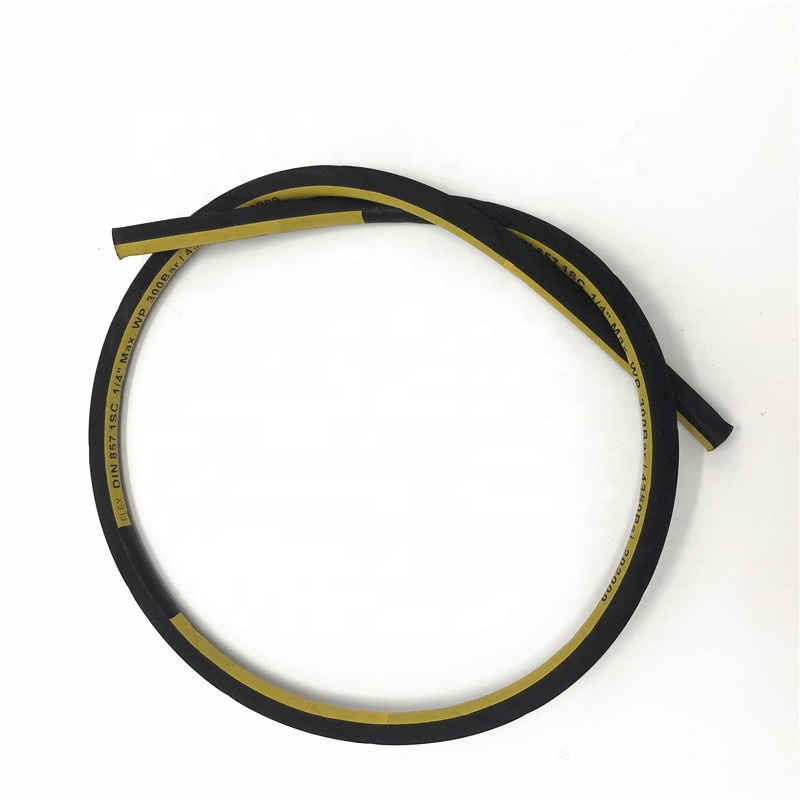335345435
Oct . 12, 2024 02:33 Back to list
OEM Manufacturing Solutions for High-Performance PTFE Hose Production
The Role of OEM Production in PTFE Hose Manufacturing
In the world of manufacturing, Original Equipment Manufacturer (OEM) production plays a crucial role in the supply chain, especially in industries that demand high-quality and reliable products. One such product is the polytetrafluoroethylene (PTFE) hose, widely used in various applications ranging from chemical processing to food and beverage industries. Understanding the OEM production process for PTFE hoses can shed light on the intricacies involved in its manufacturing, the benefits this approach offers, and its significance in various sectors.
Understanding PTFE Hoses
PTFE, often referred to by its brand name Teflon, is a fluoropolymer known for its exceptional chemical resistance, high temperature tolerance, and low friction properties. PTFE hoses are particularly favored in applications requiring the transport of aggressive chemicals, pharmaceuticals, and food-grade materials. Their unique properties ensure safety and reliability in critical operations.
The production of PTFE hoses involves several key stages, including raw material selection, extrusion, braiding, and final testing. Each of these stages is crucial to ensure the finished product meets the necessary industry standards and regulations.
OEM Production A Closer Look
OEM production involves the creation of products or components by one company that are then marketed by another company under its own brand name. In the context of PTFE hoses, various manufacturers may specialize in producing hoses that are then branded and sold by other companies. This approach has several advantages
1. Specialization and Expertise OEM manufacturers often possess specialized knowledge and skills in creating highly technical products like PTFE hoses. Their expertise enables them to maintain high-quality standards while optimizing production processes.
2. Cost-Efficiency By outsourcing the manufacturing process to OEMs, companies can reduce overhead costs. This allows for more competitive pricing in the marketplace without compromising quality.
3. Flexibility and Scalability OEM production allows businesses to scale their operations up or down more easily based on demand. This flexibility can be crucial, especially in industries where market dynamics fluctuate rapidly.
oem production ptfe hose

4. Shorter Time-to-Market Companies can expedite their product launches by leveraging OEM partners who already have the necessary facilities and technologies in place. This can be particularly beneficial in industries with a fast pace of innovation.
5. Focus on Branding and Marketing By outsourcing the production of PTFE hoses, companies can concentrate on their core competencies, such as branding, marketing, and customer service. This strategic focus can enhance overall business performance.
Quality Control and Regulations
Quality control is paramount in the production of PTFE hoses, given the critical applications they serve. OEM manufacturers typically adhere to strict quality standards and industry regulations, such as ISO certifications and compliance with specific industry directives. The production process includes extensive testing of the hoses for burst pressure, flexibility, and resistance to chemicals and abrasion.
This rigorous quality assurance not only ensures the safety and performance of PTFE hoses but also builds trust among end-users and stakeholders. Companies can further enhance their reputation by choosing reputable OEM partners with a proven track record in the industry.
Applications of PTFE Hoses
The applications of PTFE hoses are vast and varied. In the chemical industry, they are essential for transporting corrosive substances safely. In the pharmaceutical sector, their cleanliness and non-reactive nature make them suitable for handling delicate compounds. Additionally, in the food and beverage industry, PTFE hoses are favored for their ability to meet stringent hygiene standards, making them ideal for processing and transferring food products.
Conclusion
OEM production has revolutionized the way PTFE hoses are manufactured and distributed in the market. By leveraging the expertise of specialized manufacturers, companies can ensure top-quality products while benefiting from cost savings and operational efficiencies. As industries continue to evolve and demand higher standards for safety and reliability, the role of OEM production in the PTFE hose sector will remain pivotal. The future of PTFE hose manufacturing, driven by innovation and collaboration, promises to enhance performance and expand applications across diverse fields.
-
SAE 100 R17 Black Smooth Cover Hydraulic Hose
NewsMar.07,2025
-
SAE 100 R17 Black Smooth Cover Hydraulic Hose
NewsMar.07,2025
-
SAE 100 R17 Black Smooth Cover Hydraulic Hose
NewsMar.07,2025
-
SAE 100 R17 Black Smooth Cover Hydraulic Hose
NewsMar.07,2025
-
SAE 100 R17 Black Smooth Cover Hydraulic Hose
NewsMar.07,2025
-
steel wire braided hydraulic hose
NewsMar.07,2025



